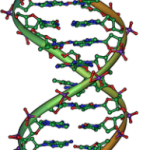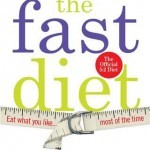

What Is The Origin of Cancer? 40 Comments Thursday, September 19th, 2013 Written by: Travis M ChristoffersonIt is cancer biology’s Most Fundamental question: What is the origin of cancer?The symbols are everywhere. Pink ribbons, Yellow LIVESTRONG bracelets, billboards advertising Race’s for Cures, T-shirts, and media reports hinting at blockbuster new drugs that are always just around the corner. All of them, taken together, give the impression we are surely winning the war against cancer.Hidden from the hope and optimism, the feel-good industry of cancer, is the battlefield – where a simple body count will tell a far different story. This year almost 600,000 Americans will die from cancer – the equivalent of one world trade center collapsing on society every day. But beyond the raw numbers are the survival statistics, and they all lead to an uncomfortable conclusion – we are not winning the war against cancer; we are no closer to cures than when Nixon declared the war on cancer in 1971 – in fact, we may be further away.This is surprising considering, my generation, following in the wake of the irascible baby-boomers, has reaped the benefits of a class-action suit that their demographical-bulge seemed to have filed against aging itself – compiling a resume of success against almost every conceivable malady – except cancer.Something has gone terribly wrong.Everybody should be asking the question –what has gone wrong in our generational war against cancer? As a country, we spend more on cancer research that any other disease – 200 billion since 1971 – with tremendously little to show for it. (Not even considering the fact cancer is under constant investigation at every major pharmaceutical company around the world.)Many have suggested answers to this question that seem to just skim the surface — but the real answer may be much deeper. This situation couldn’t exist unless there was a profound and fundamental flaw in the way we’re thinking about cancer — This article is an attempt to shine light on exactly what the flaw might be. Cancer is a genetic disease – right?Cancer is a disease of DNA. If you’ve had a biology 101 class you know this. One hundred years of slow and painstaking detective work has firmly established the primacy of DNA as the critical macromolecule responsible for cancer. The link between DNA and cancer is through genes called oncogenes, genes that when mutated result in the formation of cancer. Textbooks tell us we all carry oncogenes within our DNA — the seeds for cancer are already baked into each and every one of us, just waiting for activation. The established theory on the genesis and progression of cancer is called the ‘Somatic Mutation Theory of Cancer’, and it contends that exogenous agents like cigarette smoke, chemical carcinogens, radiation, and so forth, eventually damage, and activate (by mutations) the critical oncogenes responsible for keeping cellular growth organized – unleashing aggressive and uncontrolled proliferation – the hallmark of cancer. The Somatic Mutation Theory of Cancer is to cancer researchers what gravity is to physicists — It is scientific dogma, it is learned early by all students and never questioned again.Because cancer is a disease of DNA, in order to completely understand it, providing the foundation for potential cures, researchers would have to identify and catalog all the mutations that cause the disease, the drugs then developed to target these ‘driver’ mutations would be quick to follow.When the war on cancer was declared in 1971 the idea of sequencing the entire genome of multiple types of cancers was still science fiction, existing only in the imagination. As is often the case, technology eventually transforms imagination into reality, and right now laboratories throughout the world are churning out the genomic sequence of multiple types of cancer with inconceivable speed and efficiency. This technologically ambitious, NCI-funded project is called the Cancer Genome Atlas Project — it is the Manhattan project of cancer, it is an outcome based endeavor and its sole reason for existence is to win the war against cancer.The Cancer Genome Atlas Project (TCGA) which began in 2005 will compare the sequence of normal DNA to that of 9 different types of human cancer in order to determine the exact mutations responsible for the origination and progression of the malignancies. Researchers would finally know cancer in its entirety – they would be staring the relentless shape-shifting enemy directly in the face, with nowhere for it to hide. Make no mistake, everything has led to this – If you could fast forward over 100 years of cancer research every intellectual avenue would lead to the Cancer Genome Atlas Project as the flagship endeavor required for a cure. Almost every cancer researcher on the planet will tell you cancer is through and through a genetic disease, and the TCGA is the culmination of lifetimes spent trying to reveal the elusive details of this insidious foe – the details necessary to develop real and enduring cures. This was to be the final battle in a protracted war. This one project would vindicate the generations that have fought and succumbed to the disease.That was how it was supposed to happen. What was supposed to be the decisive battle in the war against cancer has turned into Custer’s Last Stand…..We have to step back to see what happened.Know Thy Enemy In the summer of 2009 Nobel Prize winner and co-discoverer of DNA (the molecule at the center of the cancer universe), James Watson, was full of optimism. So much so that he decided to pen an op-ed for the New York Times calling for a “refocusing of efforts in the war on cancer” – even going as far to call for “lifelong cures within a decade.” He declared, “Beating cancer now is a realistic ambition….we shall soon know all the genetic changes that underlie the major cancers that plague us.” “Beating cancer now is a realistic ambition….we shall soon know all the genetic changes that underlie the major cancers that plague us.” James Watson James Watson, after his world-changing discovery of the structure of DNA, shifted his focus to cancer. And like so many before him, he lived through the stops and starts, the fleeting victories and the crushing defeats – but overwhelmingly a pervasive feeling of frustration on the progress of cancer research was as ambient as air itself. He was there when Nixon declared the war against cancer. Americans were full of hubris and optimism at the time, fresh off the moon landing it was widely believed the disease would be cured in a handful of years.The discovery of oncogenes was to come shortly, the genes that when mutated were thought to result in cancer. It was not a bold-leap of imagination to envision a smart-war from here– a war that utilized drugs targeted to the products of oncogenes, specifically honing in on cancer cells, sparing normal cells. The days of toxic chemotherapy and radiation would soon be gone, relics of an era of medieval medicine, akin to bloodletting and leaches. But that fleeting moment of optimism, I’m sure Watson would attest, was followed by decades of excruciatingly slow progress.Clifton Leaf, cancer survivor, New York Times guest editor, and acclaimed author, has spent the last decade trying to identify the reasons we appear to be losing the war against cancer. His search has uncovered a fountain of statistics, that when taken together, reveals just how agonizing slow progress has been since Nixon declared his ambitious war. For sure the once imagined targeted smart drugs have come, over 700 of them to date, and only one, Gleevec, a drug that targets chronic myelogenous leukemia has had any meaningful impact. Clifton will also tell you if you’re a woman you have a 1 in 3 chance of acquiring cancer in your lifetime – if you’re a man 1 in 2. He will tell you that within the next decade, cancer is likely to replace heart disease as the leading cause of U.S. deaths, according to forecasts by the NCI and the Centers for Disease Control and Prevention
View original post here –
Robb Wolf – The Origin of Cancer


















 For now classes are 6pm and 640pm at 2840 Wildwood st in the Boise Cloggers studio.
Book your class NOW!
click this ==>
For now classes are 6pm and 640pm at 2840 Wildwood st in the Boise Cloggers studio.
Book your class NOW!
click this ==>








